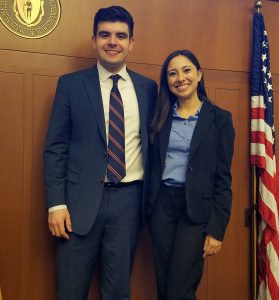Amid Continuing Concerns, MPS Chief Highlights Progress in School Initiatives
“I’m very impatient and I want everything changed overnight. But it doesn’t happen that way.”
How does it happen? I Supt takes time. It takes the involvement of pretty much everyone in the community. It takes a willingness to make changes, but then stick with them so that they can take root and grow.
Those were among the broad and important lessons Darienne Driver, the superintendent of Milwaukee Public Schools, offered at an “On the Issues with Mike Gousha” program at Marquette Law School on Wednesday. Driver was enthusiastic about progress being made within MPS and about the prospects for success growing. But she was also realistic about MPS’s problems, and about how it will take time before the impact of current initiatives can be judged.


